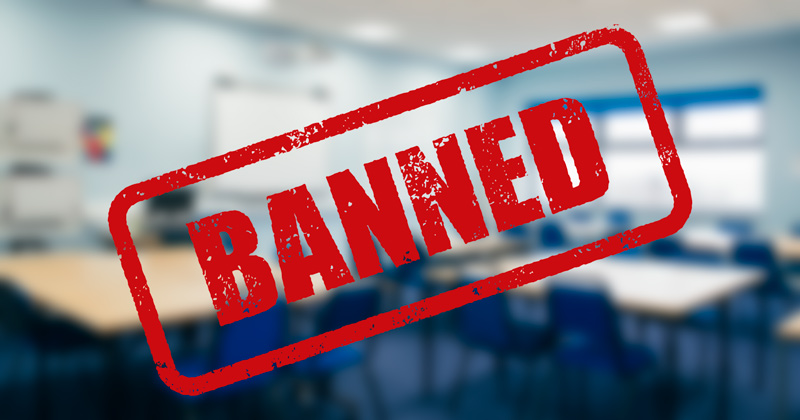Schools must record every “significant” use of reasonable force against pupils and report them to parents “as soon as practicable”, under new guidance proposed by the government.
The Department for Education is consulting on new guidance until April on the “use of reasonable force and other restrictive interventions in schools”, which also advises schools to prioritise de-escalation over restraint.
If implemented, it will place a legal duty on schools to record and report incidents from this September. It will mark the first time the guidance has been updated since 2013.
The guidance comes as Labour’s proposed Schools Bill seeks to make inclusivity key to education, and reduce the record number of permanent exclusions in schools.
Stephen Morgan, the early education minister, said there had been a “shameful number” of cases of mistreatment of vulnerable pupils.
The new guidance will ensure parents are “immediately notified about any use of force and can play a key role in discussions about how their child’s needs are met.”
Here’s what schools need to know…
1. Record ‘significant’ incidents…
Schools must “ensure that a procedure is in place for recording each significant incident in which a member of staff uses force on a pupil”. Incidents must be recorded “as soon as practicable”.
A significant incident is defined as “any incident where the use of reasonable force goes beyond appropriate physical contact between pupils and staff”.
Examples of where contact is “generally” appropriate include giving first aid, guiding or escorting pupils, comforting those in distress, praising them with a pat on the back or a handshake, demonstrating the use of musical instruments or exercises during PE.
The requirement to record applies even if the use of reasonable force and other restrictive interventions in certain circumstances is agreed with parents as part of a pupil’s behaviour support plan.
Information to be recorded includes the names of pupils and staff involved, the needs of the pupil, time, date, location, the degree of force, post-incident support and why the force was used.
2. …and inform parents as soon as possible
Schools must also report the incident to parents “as soon as practicable”. The only exceptions are if the pupil is aged 20 or over or if the disclosure would result in harm due to abuse and neglect.
In those scenarios, staff must instead report the incident to their local authority.
3. Understand ‘triggers’ to behaviour
Pupils with SEND “may react to distressing or confusing situations by displaying behaviours which may be harmful to themselves and others”.
“This can lead to pupils with SEND being disproportionately subject to the use of reasonable force and other restrictive interventions.”
The guidance states that in the first instance schools should seek to “understand the underlying triggers challenging behaviour” to provide proactive support.
It recommends schools use staff who know individual pupils well to help manage trigger points and develop strategies to reduce the need for reasonable force.
4. Is reasonable force necessary?
Staff should “consider whether there are reasonable alternative ways to manage a situation and achieve the desired outcome”.
They should consider the impact of reasonable force on a pupil’s overall welfare, balanced against any actions taken.
Reasonable force may be “particularly distressing” for pupils who have experienced an adverse life event, have a diagnosed or undiagnosed medical condition or communication difficulties.
5. Maintain ‘respect for dignity’
The DfE explicitly states staff should seek to “maintain respect for a pupil’s dignity”.
This may “include, where possible, considering the location and environment where any intervention is used, such as in front of their peers.
“Where possible, staff should clearly and calmly communicate to the pupil what is happening, why, and explain what the pupil needs to do.”
Staff should seek to “understand how the pupil is feeling and use this information to determine whether the use of reasonable force and/or other restrictive intervention should be, or continue to be, applied, reduced or stopped”.
6. Prioritise de-escalation
De-escalation and prevention should be prioritised to minimise the need for restrictive interventions, the guidance states.
Whole measures can include school and classroom environments to support all pupils, best practices to manage communal spaces and corridors, training staff in empathy and communication strategies and working on staff-pupil relationships.
Schools must have risk assessments in place if reasonable force is to be used, and where possible, mitigate risks such as through training and prevention strategies.
This is especially key if a pupil has a disability.
7. Review your data
School governors and proprietors should “regularly review and interrogate data on reasonable force and other restrictive interventions”.
This should “identify any disproportionate use of reasonable force and/or other restrictive interventions in pupils who have protected characteristics, have SEN, or other types of vulnerability”.
8. Work with SEND parents and pupils
School staff should work with pupils with SEND and their parents for any necessary behaviour support plans.
Behaviour support plans should outline any adjustments, including where pupils find challenges in the classroom in communicating their needs.
These plans should detail circumstances “where it may be appropriate for staff to have increased physical contact with a pupil”, and schools must have “risk assessments in place” for such scenarios.
Any behaviour support plans “should be reviewed with the pupil and their parent periodically and following any significant incident”.
This is so that changes “can be made based on evidence of what has worked and what has not worked in practice for the individual pupil”.











